"Time flies over us, but leaves its shadow behind." —Nathaniel Hawthorne
Time is the component quantity used to measure the duration of events, intervals between them, and their sequence. Time has long been a subject of study in science, religion, and philosophy, and it is incorporated into each aspect of a person’s everyday life. Below are 43 fast facts about time.
43. A Year Less a Few
Einstein’s theory of relativity states that the closer one is to the Earth, the slower time goes. A year goes by 15 microseconds faster at the top of Mount Everest than it does at sea level.
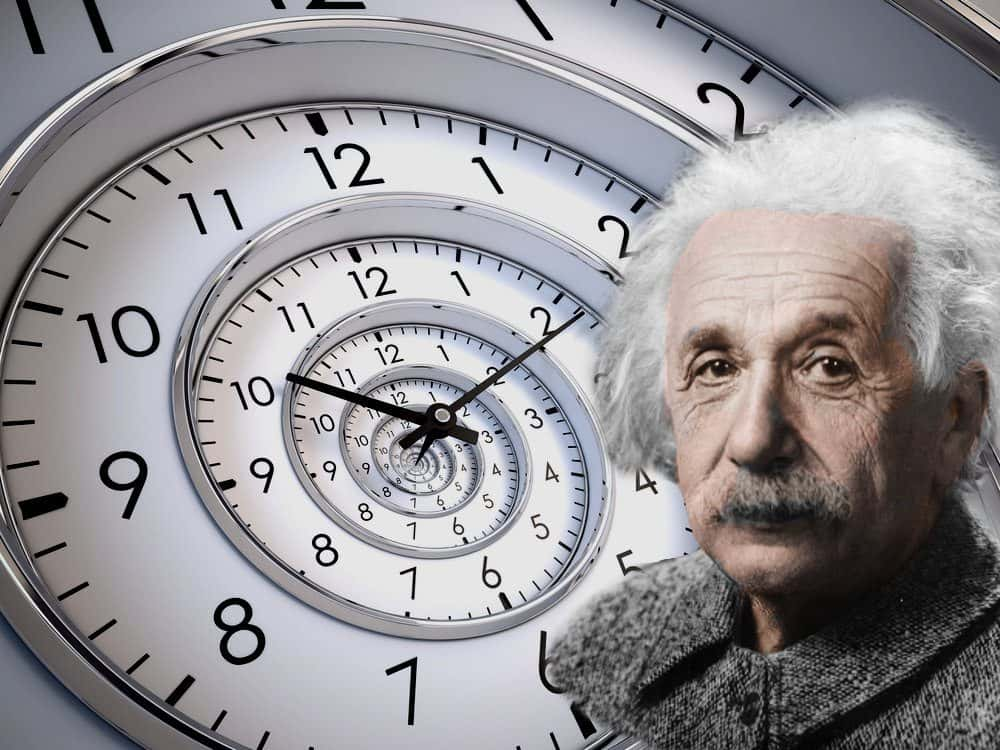
42. Oscillations
Prior to the invention of atomic clocks, a second was measured as 9,192,631,770 oscillations of a caesium (a chemical element with symbol Cs and atomic number 55).

41. The Smallest Measurement
Planck time is the smallest standard of the scientific measurement of time. It takes about five hundred and fifty thousand trillion trillion trillion Planck times to blink a single time.
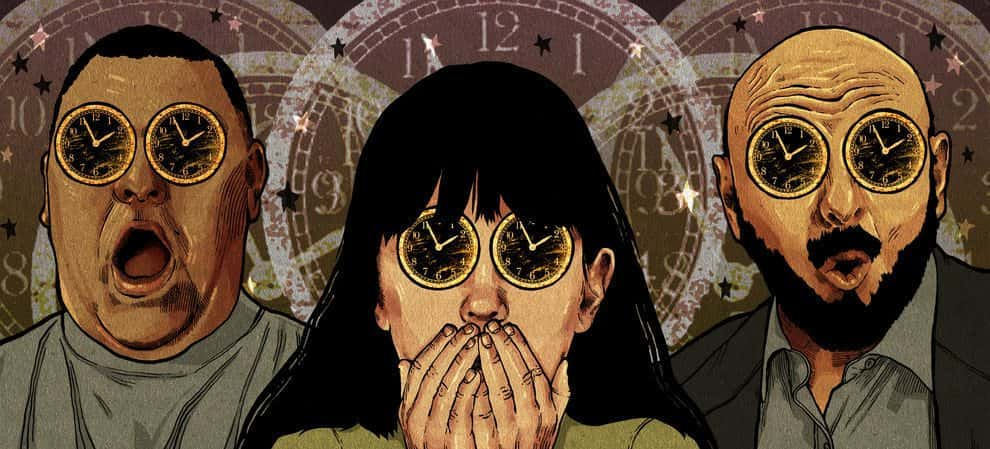
40. No Such Thing as Now
According to Einstein, "the distinction between past and present and future is only an illusion, however persistent." This is because space and time are fluid, and are affected by gravity and speed.
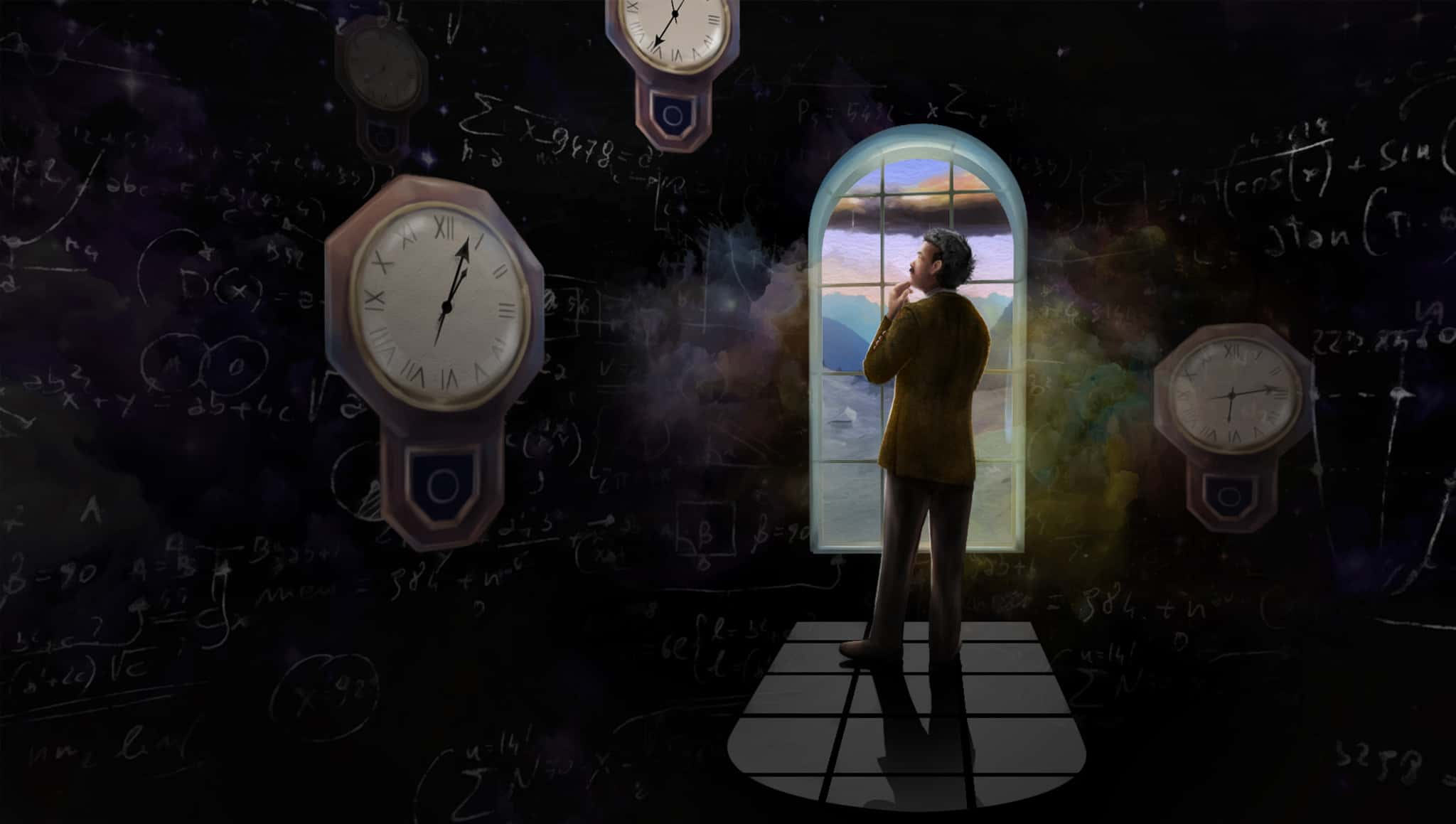
39. Pinpoint Accuracy
The strontium atomic clock is the most accurate clock ever built. It’s accurate to within a second over 15 billion years.

38. Almost as Old as the Universe
A galaxy called z8_GND_5296 is the oldest object in the known universe. It’s estimated to be 13.1 billion years old, which is about 700 million years younger than the universe itself.

37. Less than 24 Hours
Despite what we’ve been taught, a day isn’t a full 24 hours. It actually takes 23 hours, 56 minutes, and 4.2 seconds for the earth to rotate once.

36. Sunrise to Sunrise
It takes 24 hours from sunrise to sunrise because each day the Earth moves further in its orbit around the sun, lengthening the day.

Sources: 1, 2, 3, 4, 5, 6, 7, 9, 10, 11, 12, 13, 14, 15, 16, 17, 18, 19, 20, 21, 22
35. Oldest Known Object on Earth
A 4.4 billion-year-old crystal, a zircon, is the oldest known object on Earth. It was found in Jack Hills in Western Australia, and is only 160 million years younger than Earth.
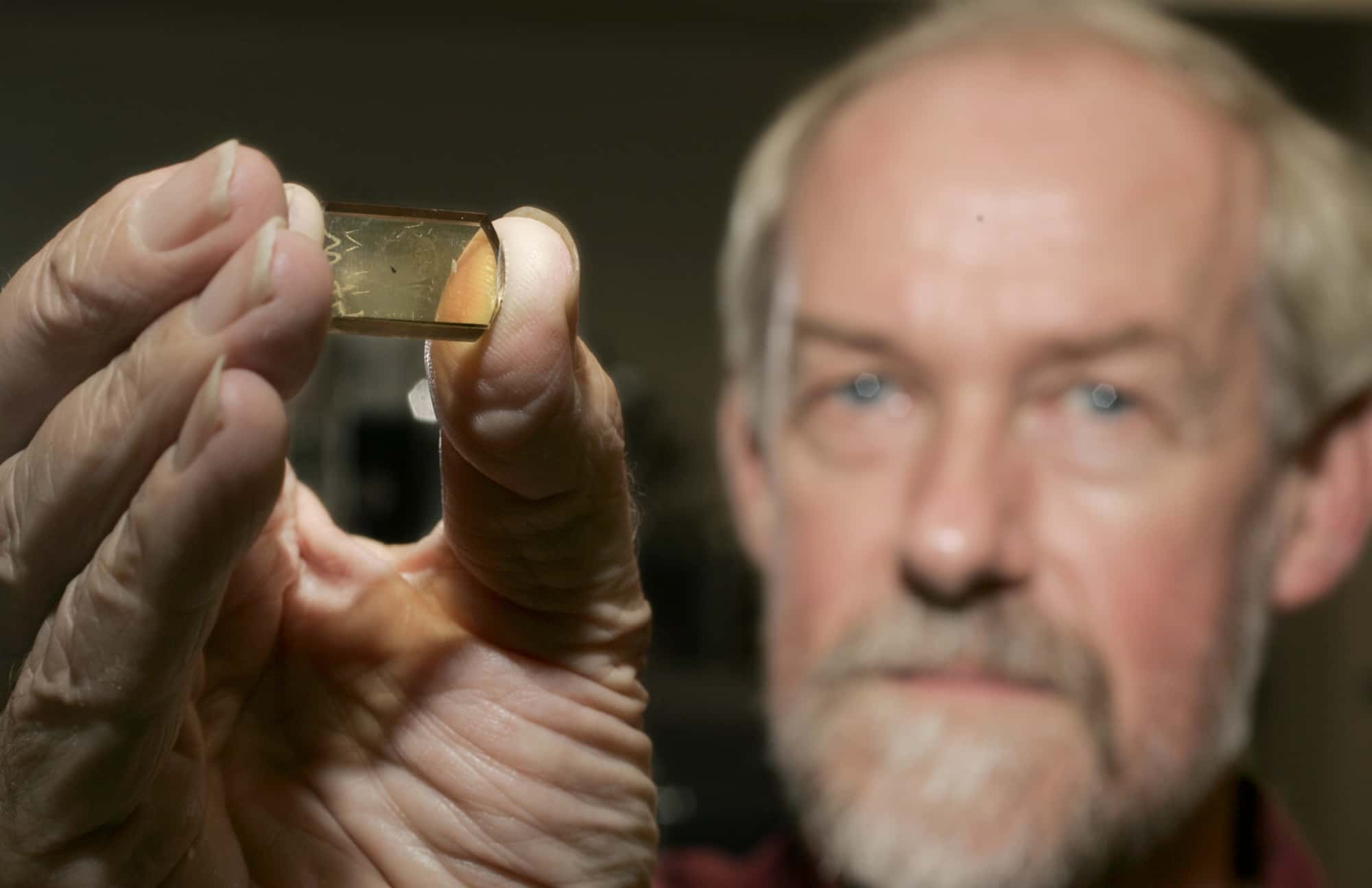

History's most fascinating stories and darkest secrets, delivered to your inbox daily.
34. Is This Clock Late?
Until the 19thF century, towns would set their clock by the local noon, which would put a train in Bristol 11 minutes behind London. As a result, people kept missing their trains, and beginning with the Great Western Railway in 1840, railway companies began using standard, London-based UK time, making train timetables easier to run.

33. Everything is Past
It takes time for light to reach us, and as a result, everything we see is in the past. When you see the sun out your window, the light is already eight minutes and 20 seconds old. The light from Earth’s nearest star Proxima Centauri is four years old.

32. A Long Day
On the planet Mercury, a single day is two Earth years long.

31. Overestimating is Better
Researchers agree that we get more pleasure from overestimating time than underestimating. If a task estimated to take an hour is completed in 15 minutes, a person will regard the experience more pleasurably than the reverse. This is why people become agitated when someone is late, and why theme parks overestimate projected wait times for rides.

30. Time Slows When You’re Having Fun
According to a psychological study, the old adage "time flies when you’re having fun" isn’t quite true. In fact, it’s just the opposite. When people were listening to music they enjoyed, time seemed to pass more slowly. This could be because people pay more attention to things they like, which slows their perception of time.

29. Frozen
It appears that distant galaxies are moving faster than nearby ones, which suggests that the universe is accelerating as it expands. One physicist has suggested that the reason distant galaxies appear to move faster is because in the past, time was faster. If he’s correct, this means that in a few billion years, time will be frozen.
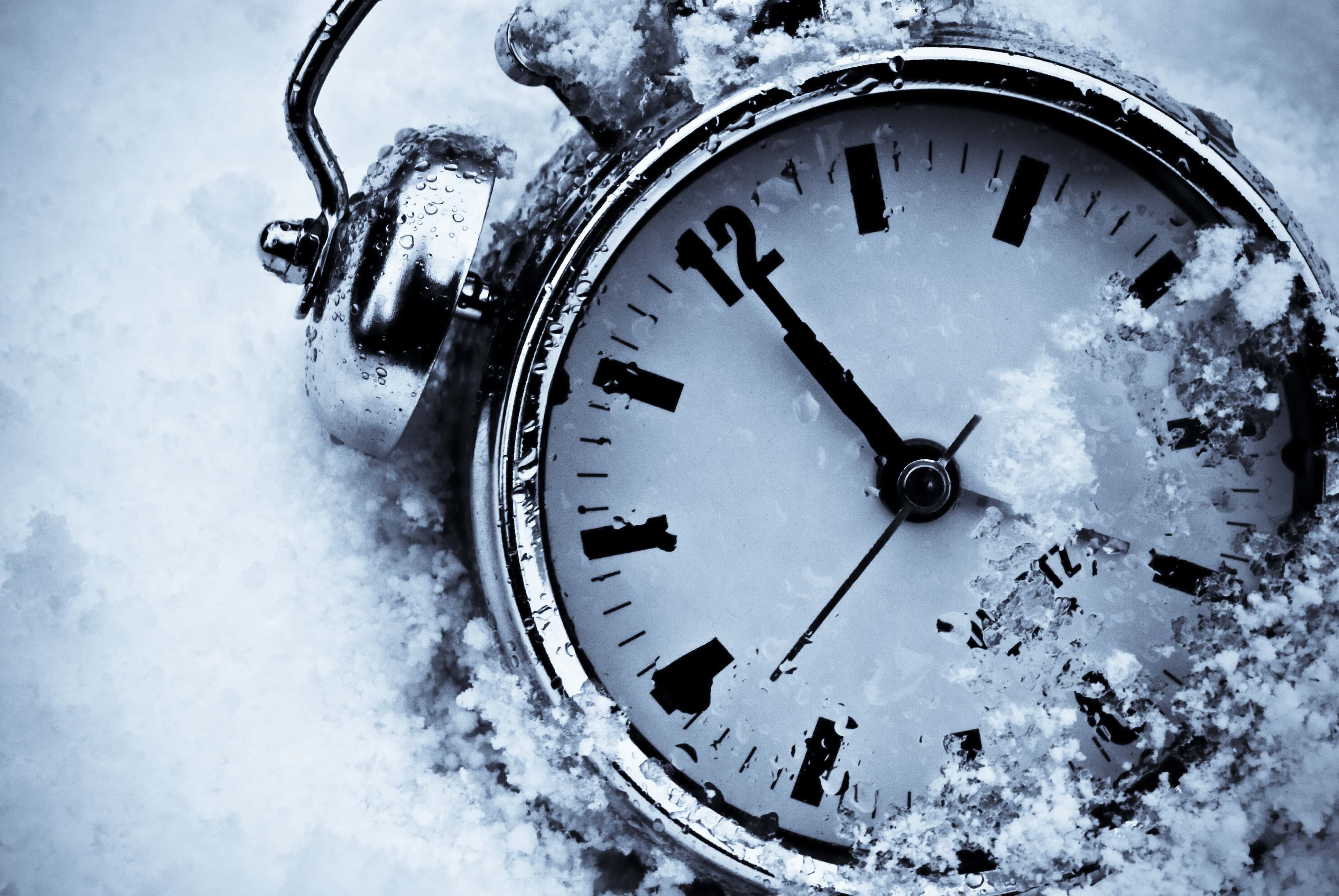
Sources: 1, 2, 3, 4, 5, 6, 7, 9, 10, 11, 12, 13, 14, 15, 16, 17, 18, 19, 20, 21, 22
28. Leap Second
The Earth’s rotation is slowing, making the 24-hour day slightly off. In order to compensate for the lengthening days, the International Earth Rotation Service (the body which regulates astronomical time) periodically adds a second to the clock to keep things regular. This extra second is called a leap second, and the most recent one took place on Dec. 31, 2016.
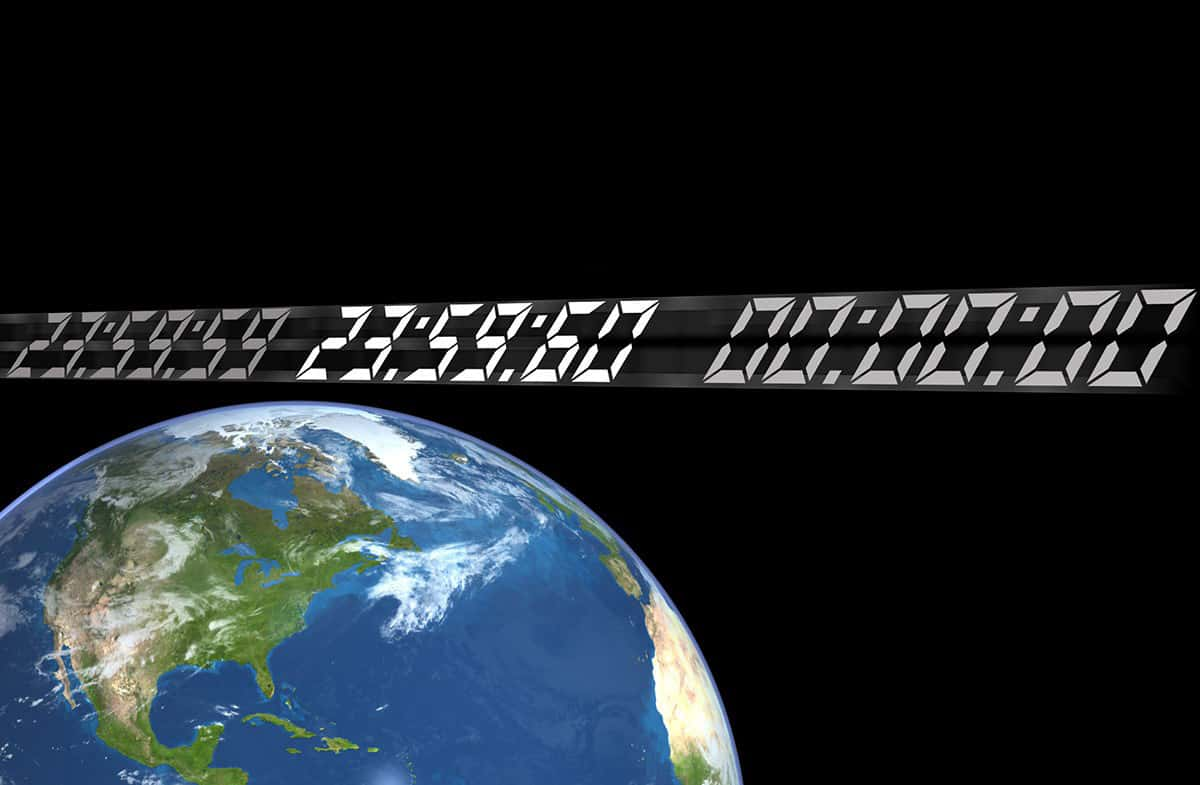
27. Spending Time
There are 31,556,926 seconds in a year.
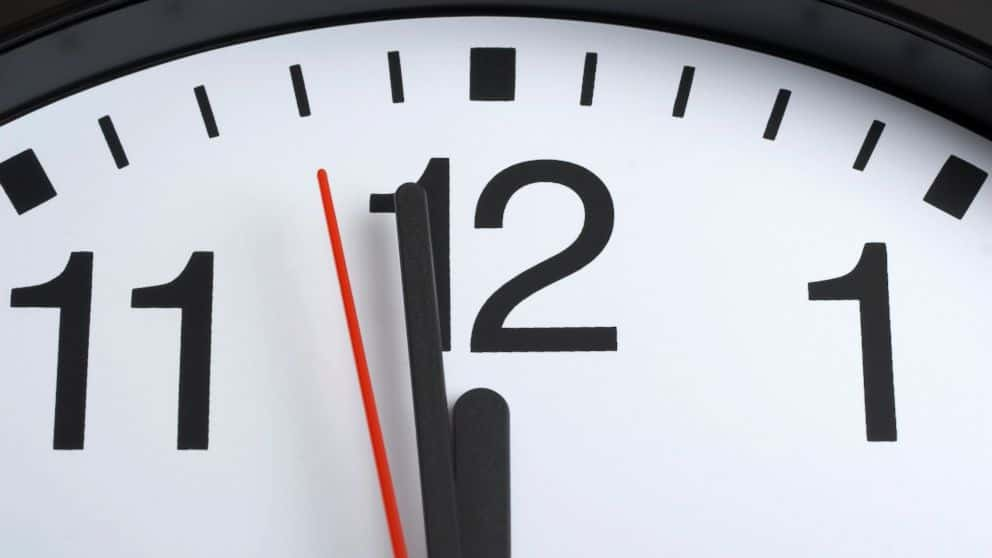
26. The Beginning of Time
Although scientists know that the universe began with the Big Bang approximately 15 billion years ago, they have no estimation for when the universe will end.

25. Younger than the Sun
The sun is estimated to be around five billion years old. Earth is slightly younger than that at about 4,540,000,000 years old.

24. On a Saturday Night
According to the 17th century Archbishop of Armagh, James Usher, the Earth was created on Saturday, October 22, 4004 BC. Usher came to this conclusion by adding up the family histories mentioned in the bible.

23. No More Weekends
In 1930, Joseph Stalin abolished weekends in Soviet Russia to improve productivity. In 1931, the calendar went to a six day week and then back to a seven day week in 1941.

22. Longest Living Mammal on Earth
The bowhead whale (also known as the artic whale) is one of the longest living mammals on Earth. The oldest known bowhead whale is at least 211 years old, and there are whales swimming around with the tips of 200-year-old ivory spears still lodged in their flesh.

Sources: 1, 2, 3, 4, 5, 6, 7, 9, 10, 11, 12, 13, 14, 15, 16, 17, 18, 19, 20, 21, 22
21. Beats Per Second
A hummingbird’s heart beats as fast as 1,260 beats per minute. On cold nights, their heartbeat slows to 50-180 beats per minute, when they experience a hibernation-like state.

20. The First Calendar
The original Roman calendar is believed to have been invented by Romulus, the first king of Rome, around 753 BCE, and was based on phases of the moon. The calendar began in March, and only had 10 months. Six of those months had 30 days, and four months had 31 days.
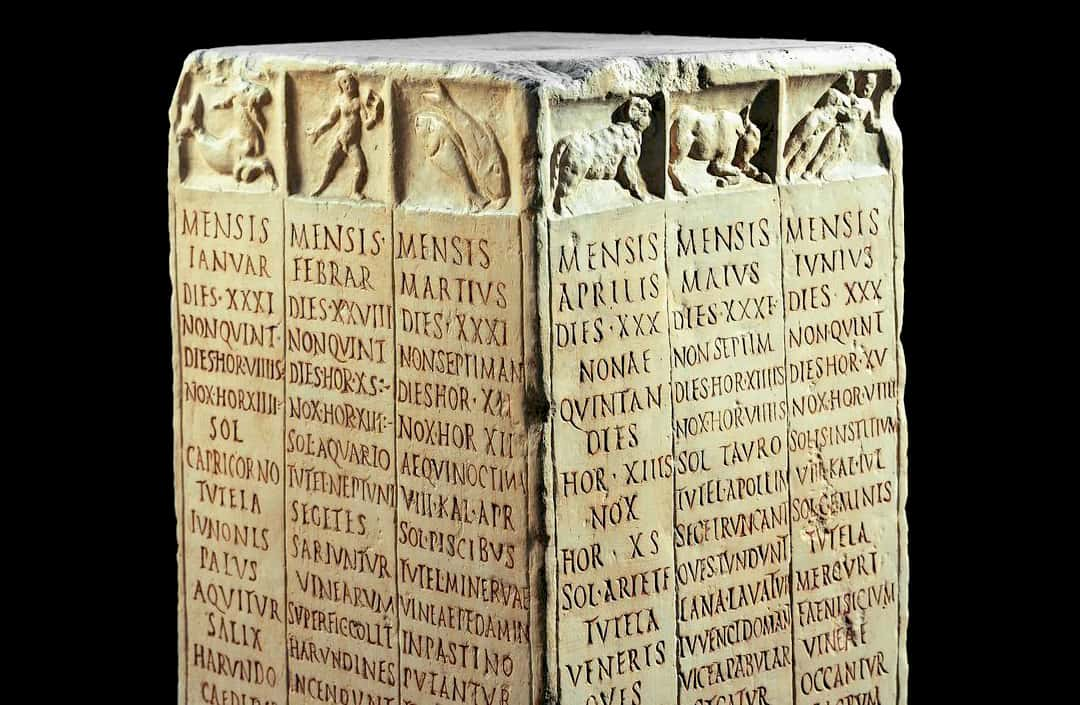
19. Lost Days of Winter
In the Roman calendar, winter was not assigned to any month. This made the entire year 304 days long, with 61 days unaccounted for in the winter.

18. Two New Months
The Julian calendar, which was the calendar proposed by Julius Caesar, was based on the Earth’s rotations around the sun. Caesar also introduced two new months to the calendar: July, which was named after him, and August, after his successor Augustus.
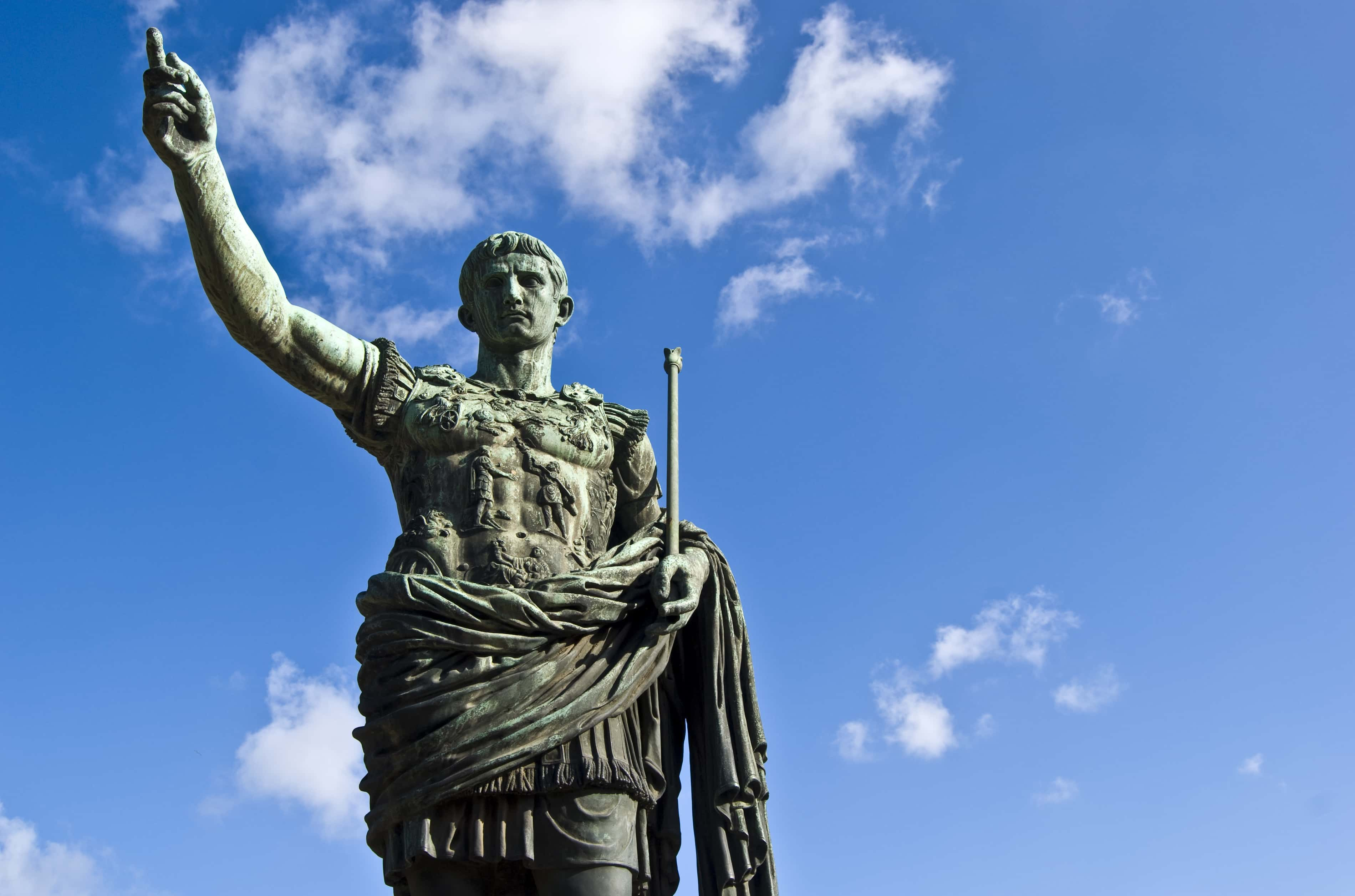
17. One Day More
A Julian year is 365 days and 12 months, with an extra day added to February once every four years. At the time, February was the last month of the year, and leap day would have been on Feb. 24.
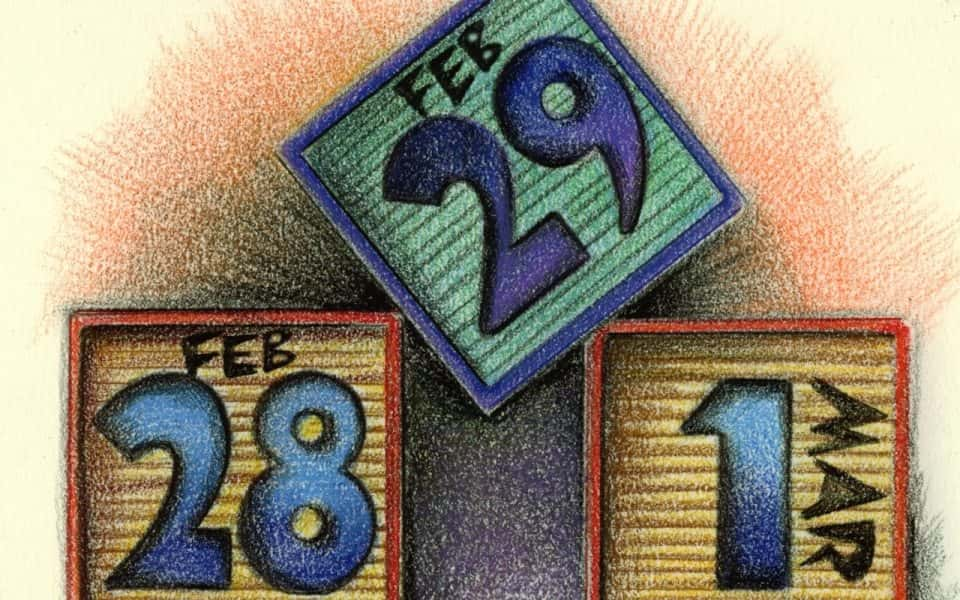
16. February 30
A normal February has 28 days, and a leap year 29, but a few times in history Feb 30 has been a real day. The first was in 1700 when Sweden planned to switch from the Julian calendar to the Gregorian calendar. The second was also in Sweden in 1712, when Sweden restored the Julian calendar, and added two leap days to the year.

15. Births Per Minute
In 2011, the Population Reference Bureau estimated that 250 babies are born around the world every minute. That adds up to about 4 births for every second of every day.
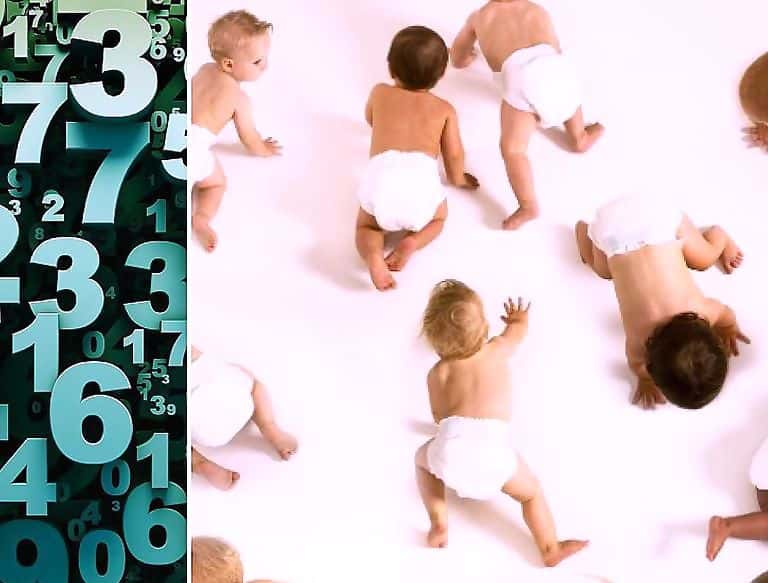
Sources: 1, 2, 3, 4, 5, 6, 7, 9, 10, 11, 12, 13, 14, 15, 16, 17, 18, 19, 20, 21, 22
14. Deaths Per Minute
The number of births per minute is approximately half the number of deaths in the same time frame: 105 people die per hour, about 2 people per second.
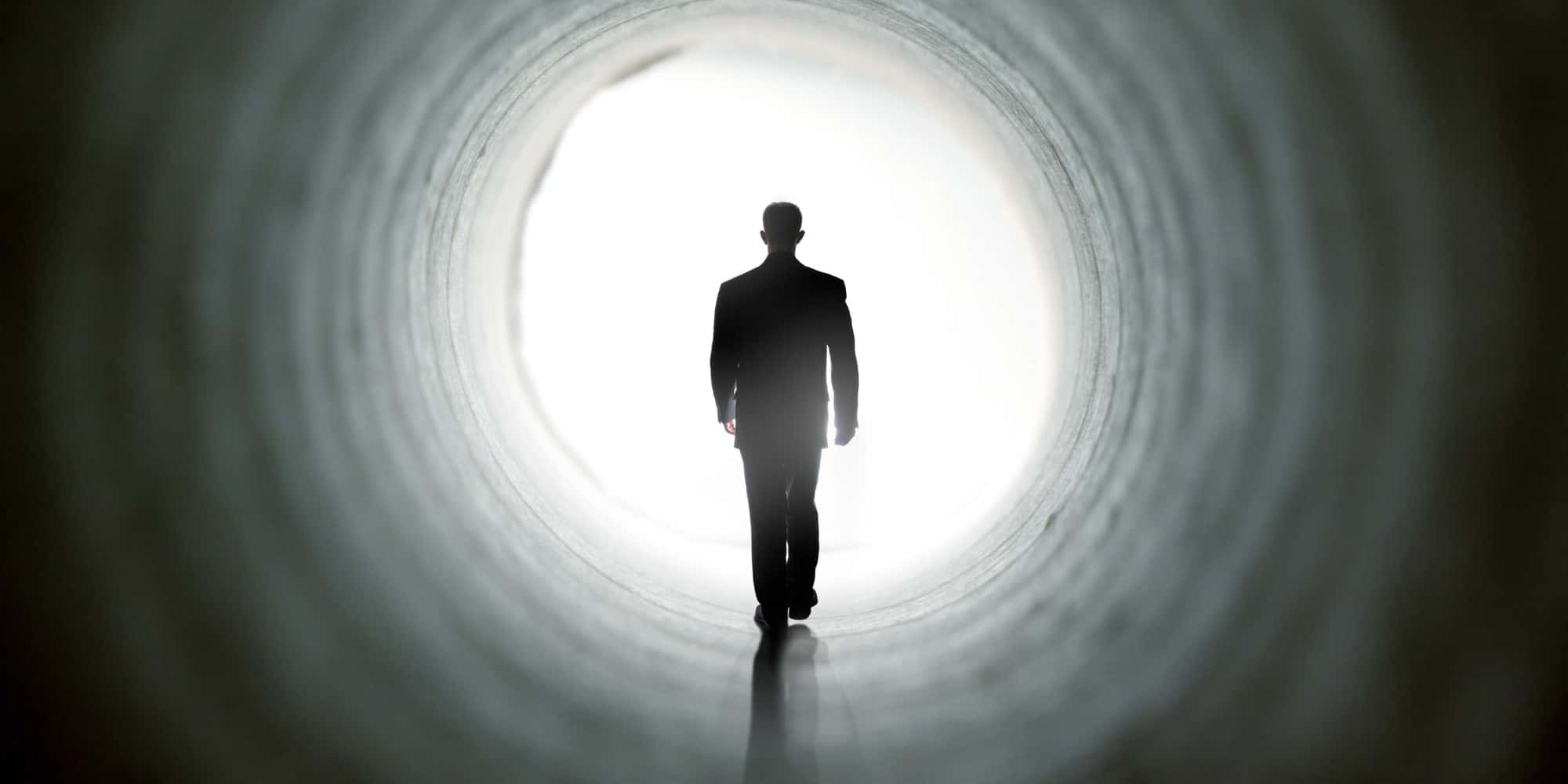
13. 6,000 Strikes Per Minute
Lightning hits the earth at a rate of 6,000 strikes per minute, or 100 strikes per second. Luckily, the odds of being struck by lightning are pretty low.

12. 2.5 Billion Beats
By the time you turn 70, your heart will have beat 2.5 billion times. On average, the heart pumps 377 litres of blood around your body every 60 seconds, and beats more than 100,000 times per day.

11. 75 Per Second
McDonalds sells approximately 375 hamburgers every five seconds.

10. Oddball Effect
A new experience will always seem to stay longer in your memory than older ones. This is called the oddball effect, and it is the reason that time seems to speed up as you get older.

9. Time for Sale
In 1836, a business man named John Belville began to sell time. He set his pocket watch every morning at the Greenwich Observatory where he worked, and he would sell precise time to clients in the city. The business continued with his widow, Maria, until 1940.
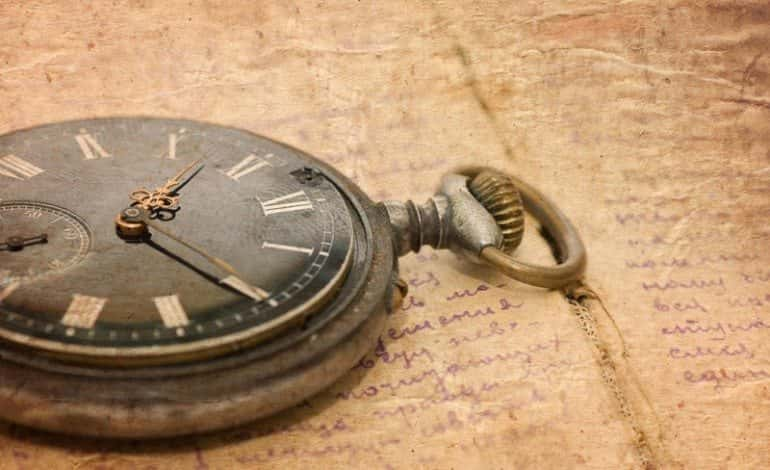
8. Ten Days Lost
In the Julian calendar, a year was 365.25 days, which was 10.75 minutes too long, and put time 10 days out of sync by 1582. To correct the error, Pope Gregory XIII decreed that 10 days be eliminated, and the Gregorian calendar was introduced.

Sources: 1, 2, 3, 4, 5, 6, 7, 9, 10, 11, 12, 13, 14, 15, 16, 17, 18, 19, 20, 21, 22
7. The Distance Between Them
Counting the seconds between a lightning flash and the sound of thunder can tell you how far away the lightning strike actually is: a delay of three seconds means that the lightning strike is 0.6 miles away.

6. First Time Keepers
The first known civilization to keep track of time were the Sumerians, who settled in Mesopotamia (now Iraq). Their calendar was based on the moon, and it had 30 days divided into 12 periods that again had 30 parts.
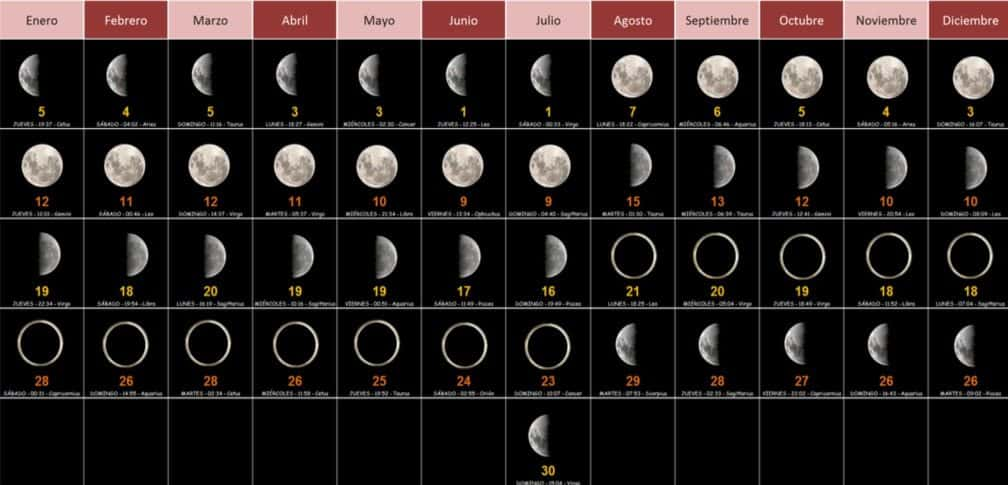
5. Water Clocks
Dating back to 16th century B.C. Babylon, water clocks used the steady flow of water to track time. A large bowl or container was filled with water, and would slowly drain through a spout in the bottom. The inside of the bowl was marked with times, and you could tell time based on the water level in the bowl. Unfortunately, there was a fatal flaw to this design: as the bowl emptied, water would flow more slowly until it barely trickled and no longer kept accurate time.
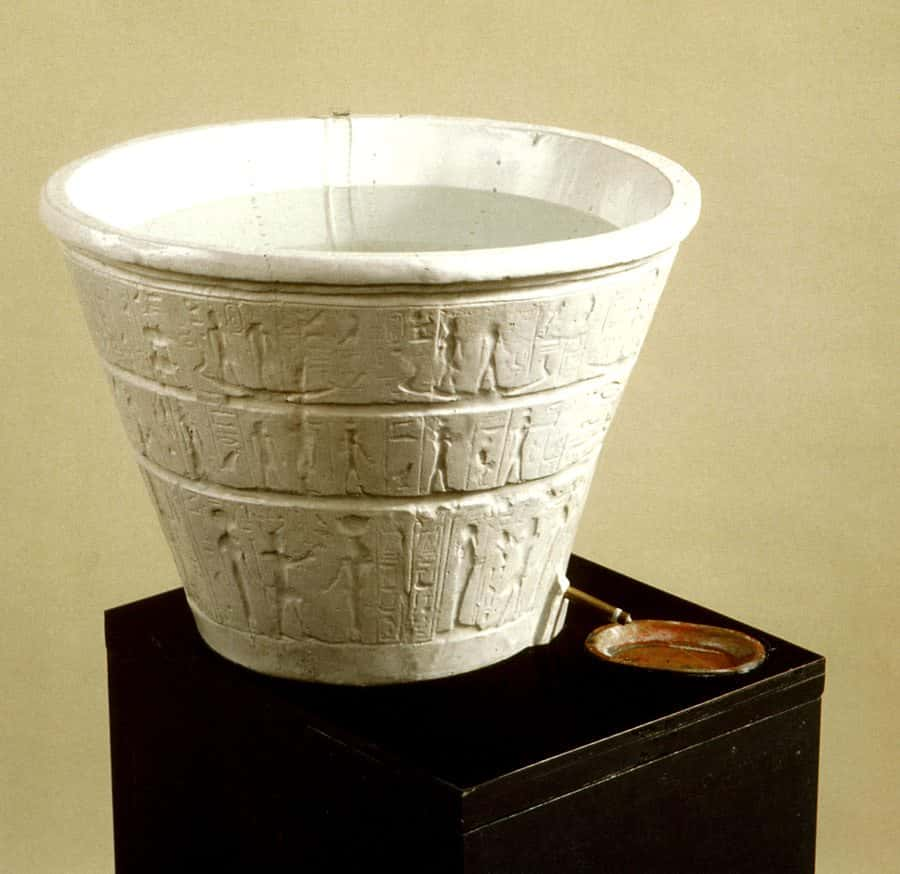
4. Getting Some Shut-Eye
If a person sleeps for an average of 8 hours per night, they will spend approximately 229,961 hours sleeping in their lifetime, which amounts to about 1/3 of their lives.

3. 3-Day Game
The longest board game marathon on record is 80 hours, achieved by four friends in the Netherlands between January 3 and 6, 2017.

2. Fast is Slow
The faster you move, the slower time goes. According to the laws of physics, you will actually age more slowly if you travel extremely fast. If you were to fly at 99% of the speed of light into the star Sirius, you would have aged less than two and a half years on arrival, but the people on Earth would have aged more than 17 years.
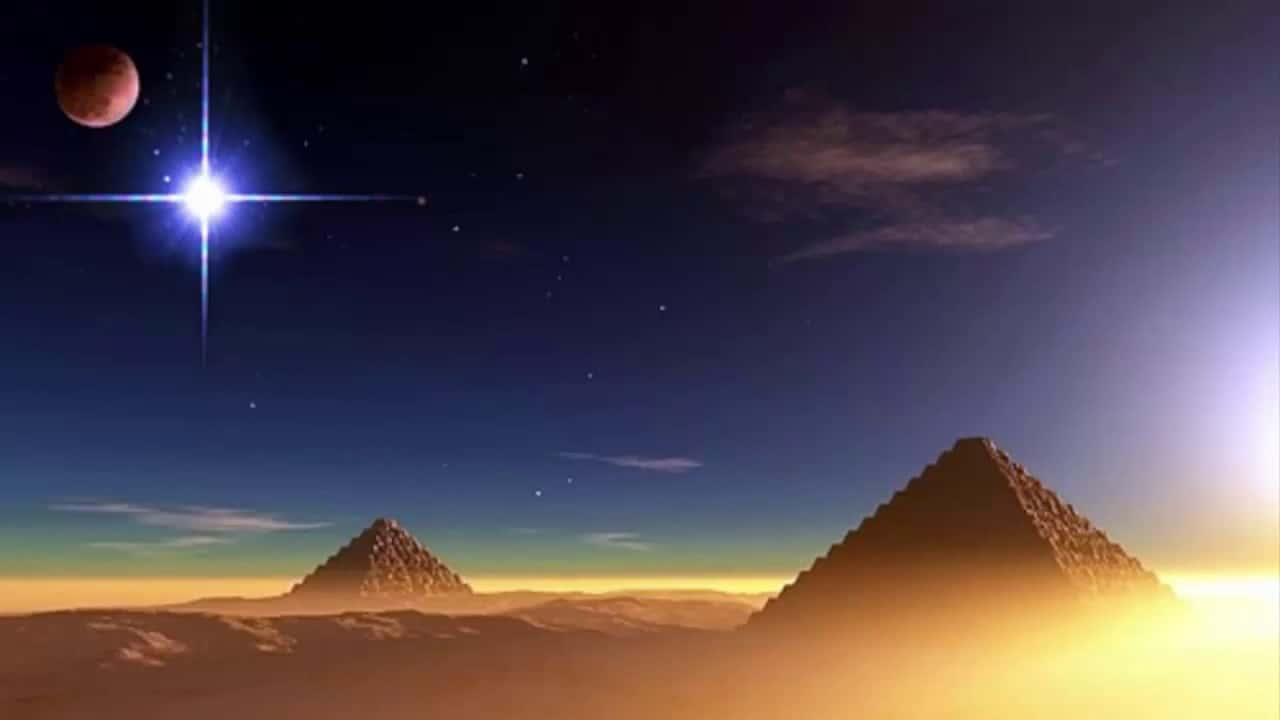
1. A Dinosaur Year
In the time of the dinosaurs, a year was 370 days. Over time, the moon’s gravity has acted as a drag, lengthening a day by 1.7 milliseconds per century, causing the Earth to spin slower and the days to become longer.

Sources: 1, 2, 3, 4, 5, 6, 7, 9, 10, 11, 12, 13, 14, 15, 16, 17, 18, 19, 20, 21, 22










